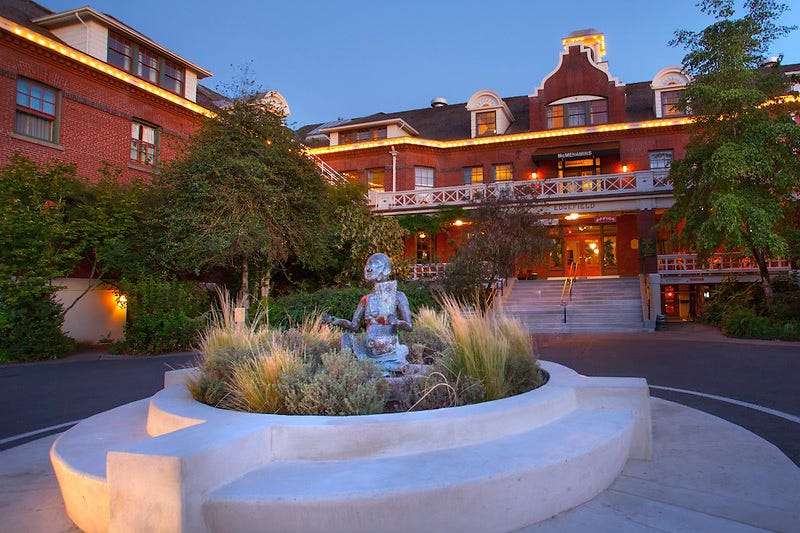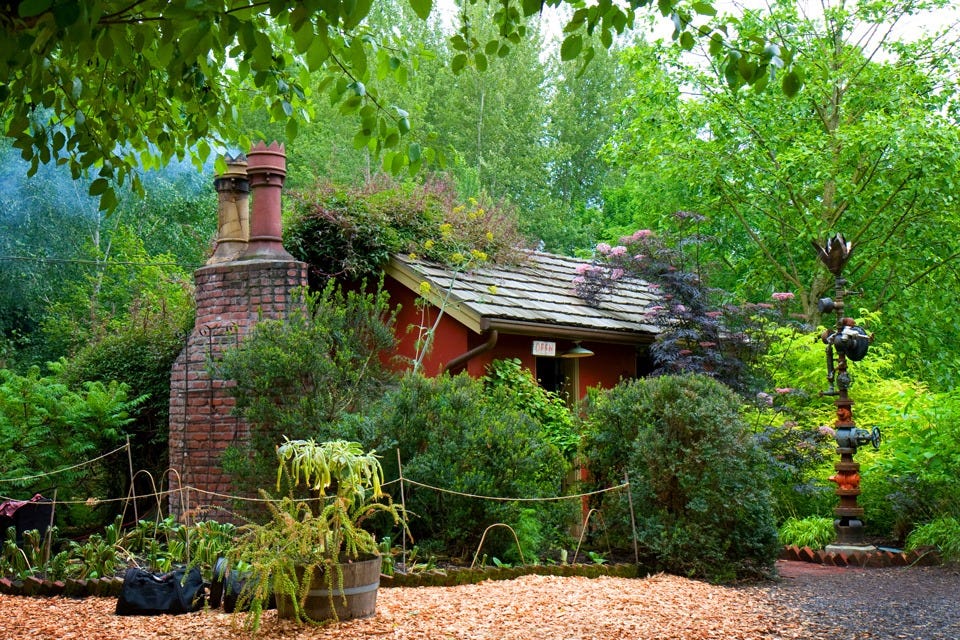“The wrestling is who we are. How we wrestle is who we are. What we want to be is never what we are. Not yet. Maybe that’s why we have these relentless engines in our chests, driving us forward toward what we might be.” —Brian Doyle
“I think we are all children even if we have old bodies and we should make a republic that runs on the wonder of children whether we are old or young children.” ―Brian Doyle
“We cannot give gifts, we cannot change what is…but we can open things that are closed. We are allowed to move obstacles.” —Brian Doyle
Dear Writer,
Some people commit themselves to the work early on and forge a lifelong partnership with writing. Others among us have a longer road to walk: we feel the magnetic pull of writing early, too, but for reasons as varied as humans themselves, may take years to view it as a necessity, not something we once loved but simply don’t have time for.
I’ve had long periods of not-writing. Instead I was “doing practical things,” going to graduate school, massage school, caring for children, patients, animals, a garden, homeschooling and making dinner each night, (a task that over time, can be surprisingly arduous when young kids are at your table, even for someone who enjoys cooking.) I knew during those times I wasn’t nurturing an essential part of me. Even while my life was filled with miraculous, fleeting moments with my family and work, a fuller sense of contentment felt impossible because things happened and then were done. It’s that next part, the wrestling, giving experiences and impressions a new shape, in words, that completes a cycle for me. Then I can rest; the engine in my chest can idle, if briefly.
For people like us, everything happens, and writing is our reply.
This week my family and I will return to Edgefield: a sprawling 84 acre estate and hotel thirty minutes east of Portland, Oregon that used to be a poor farm for adults with no money and no place to go. The bones of Edgefield are an assortment of old spaces, once abandoned, then swallowed up by blackberry vines—boarding rooms, delousing sheds, root cellars and outbuildings. When it was purchased for a new purpose, each structure was uncovered and tended to, reinforced, and finally lit back up, welcoming humans again with rooms to rest in, spaces to take in live music, unexpected bars to tuck into.
For many years we’ve celebrated the holidays there with my in-laws, though we took the last two off. The first, we skipped due to the pandemic. The following year, my mother-in-law, who’d had Alzheimer’s, suddenly caught Covid and had a stroke all at once, then died shortly afterward. So we missed that year too, because it didn’t feel right to go without her. It still hurts, the thought of that place without her in it, but this year, a vote was held and we all decided it seemed okay to finally try.
When it was operating, people from many corners of society gravitated to the poor farm: teachers, loggers, sea captains, homemakers, musicians, former slaves and slave owners, each of them bound by their common need at some point for a “leg up.” Residents worked the property, tending to vegetable and fruit gardens, milking cows and raising pigs. The crew was so productive, they fed themselves plus residents of the county hospital and jail.
Eventually, with a dwindling, aged population, Edgefield transformed into a kind of nursing home, and then in 1982, closed its doors and sat vacant for the rest of the decade. Vandals looted the property, stealing what they could, breaking pipes, covering walls in graffiti. The county was set to tear the compound down. And then two brothers, the McMenamins from Portland, visited. They pictured taking that fading place and bringing it alive again, both reviving and repurposing it, never obscuring or turning away from its history.
After some delay with dubious banks over financing, the McMenamins purchased the property and once renovations were under way, hired twelve artists. The group was given creative freedom to tell the story of the estate’s past with the help of resident photographs, dusty log books and newspaper clippings about the farm over the decades.
Original paintings of former tenants now peer at you from the walls: two elderly women ride on a tilted version of the massive, original water tower that still sits on the property, flames shooting out the back, on a course skyward; a young woman in an olive dress in an empty Edgefield attic sits on the back of an enormous teal blue bird, holding a set of reigns secured around the bird’s beak; two human bodies hold one another, dancing, with faces that resemble a moon and a sun. Other portraits include more traditional faces and there are little biographical sketches in the bedrooms that detail what the resident’s nicknames were, what kinds of pies they loved to bake.
At night, the winds at Edgefield rattle the old wooden window frames. Days there are full of long hallways and loaves of dark homemade bread and granola, creaking floors and Marmoleum staircases.
December skies in Troutdale tend to be cool, overcast and sometimes drizzly. To buffer yourself from the chill, you can can put on an oversized white robe and shuffle around the Edgefield grounds, wave to other white robed humans and make your way to the winding soaking pool, cranked up to just below bathtub temperature.
Each year I’ve sat in that pool, mist rising off the surface, and considered what I‘d like to set in motion, a kind of annual resolution. And each time, I’ve willed myself to bend a little further toward writing. In the past, I mostly haven’t lived up to those dreams but I’m growing my capacity to be gentle with myself and to recognize there are seasons, as they say, for everything.
This year, when I sit in the pool, I’ll think about the spell that seems to have been broken in my life: for the last six months, I’ve been writing regularly at my basement desk each morning before my family wakes up. Now that I’ve begun a consistent practice, I find I can’t stop, I find all the stories I’ve held inside want a resting place outside of me. New phrases and ideas strike me in the shower, in the middle of the night.
The beauty, I think, of finding your way to writing at some point roughly in midlife or beyond is this accumulated history you have to mine and explore, little spaces you can choose to uncover. The stories you might tell about people, births, homes, losses, heartaches, landscapes, dreams and stories that defy tidy categories, too, are all there, your raw materials, ready for you to assemble and reassemble into new shapes. Doing the excavation necessary can be tiring, laborious work. But if you’re drawn to write, I know of nothing, personally, that compares.
There’s a tiny bar at Edgefield called the Red Shed that has stucco and wood walls and an old brick chimney. Once it functioned as the property incinerator before it was retired and disappeared under a mountain of vines. Then the McMenamin brothers and their staff unearthed it and today, inside, there’s space for just a handful of tables nestled together, a small bar and a little stove.
The Red Shed feels drawn from a fairytale, an elf’s cottage that invites adults to step out of the confines of their ordered lives and into something playful again, a retreat to the best parts of childhood. You can dream a little bigger here, the building might say if it could speak, unbury your imagination, reach back for what you once assumed was silly, a youthful dream, impossible.
We can open things that are closed, Brian Doyle once wrote, words now inscribed, in paint, on the walls of the Edgefield lobby. We can remove obstacles and break spells and establish new patterns that once seemed illogical. I don’t think for a moment a daily writing practice is necessary to connect again with your writing self, or that any ideal formula exists outside the one that lights you up, reminds you of the magic words together can make. You have all you need right now: your own history, distinct in the world, a pencil and paper, a blank computer screen, the desire to begin.






I loved reading this. And I feel the same (people like us). Yup - writing is a necessary reply. Keep on excavating, Addie. 🫶
Oh, I love learning about this!